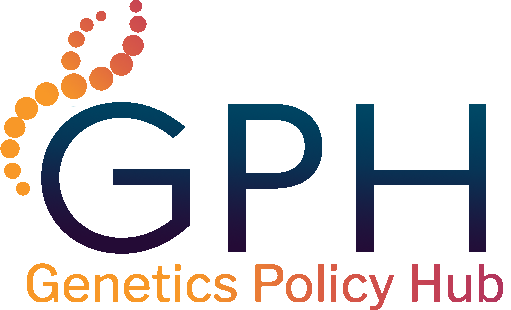From 2004 to 2024, the Health Resources and Services Administration (HRSA) funded the National Coordinating Center for the Regional Genetics Networks (NCC). NCC developed and maintained the Genetics Policy Hub.
With the conclusion of NCC funding, the Genetics Policy Hub (GPH) will no longer be updated or maintained. Information on GPH should be used for historical reference only.
South Dakota
This data is meant to be used for educational purposes to inform providers, patients, insurers, and state Medicaid agencies what genetic services may or may not be written into each state’s Medicaid policy. The database is not meant to indicate or imply whether a certain program will cover a specific service, since many decisions are made on a case by case basis. If you have specific questions about whether a service is covered, you should reach out to your plan administrator. Please see this disclaimer below for more information.
Medicaid Coverage Information Published
State Contact Information
Sarah Aker
Director, Medical Services
South Dakota Department of Social Services
700 Governors Drive, Kneip Building
Pierre, SD 57501-2291
Phone: (605) 773-3495
https://medicaiddirectors.org/wp-content/uploads/2023/06/Public_DirectorsList_June2023-1.pdf
General Genetic Testing Criteria
Diagnostic genetic testing must meet the following criteria:
- The recipient displays clinical features of a suspected genetic condition; or
- The genetic condition must be associated with a significant medical condition; and
- The results of the genetic testing must result in an evidence-based change in the active treatment plan.
Genetic Testing Not Covered
South Dakota Medicaid does not cover Genetic testing services under the following circumstances:
- Testing for information for the recipient without impacting treatment.
- Tests performed for the medical management of other family members, including future family planning.
- History, physical examination, pedigree analysis, or completion of conventional diagnostic studies has given a definitive diagnosis.
- A genetic test was previously performed for the recipient to provide a conclusive diagnosis of the same genetic disorder.
Tests for conditions that are treated symptomatically are not appropriate because the treatment would not change. Genetic testing is not covered to determine the risk of occurrence in other family members (for example genetic testing for family planning purposes).
South Dakota Medicaid does not cover pharmacogenetic testing for the following as it is considered investigational and not the most conservative option:
- Selective antipsychotic drugs
- Selective norepinephrine reuptake inhibitors
- Selective serotonin reuptake inhibitors
- Selective tricyclic antidepressants
State Specific Definition
Genetic Services for Children
Genetic Counseling Requirement
Licensure is required. The applicant should send an email to sdbmoe@state.sd.us that includes their full legal name and type of licensure they wish to apply for. Board staff will reply with the initial steps to help fast track all applications in the order the request was received.
Metabolic Formula Coverage Legislation
South Dakota
SDCL §58‐17‐62
SDCL §58‐18‐41
SDCL §58‐38‐23
SDCL §58‐40‐21
SDCL §58‐41‐98
SDAR 67:16:42:01 et seq
Metabolic Formula Coverage & Criteria
Enteral nutritional therapy is covered when a recipient has a functioning gastrointestinal tract but cannot maintain weight and strength commensurate with the recipient’s general condition because of a medical condition or illness or pathology to or the nonfunctioning of the structures that normally permit food to reach the digestive tract. This service is subject to additional restrictions based on the age of the recipient at the time of service.
Prior Authorization Requirements
Most genetic testing requires a prior authorization. To obtain authorization, the provider must complete the applicable genetic testing prior authorization form available on the department’s website. The department will determine whether the test meets the prior authorization criteria.
Prior Authorization Forms
Fee Schedule
BRCA Testing Coverage
Yes
Requirements for BRCA
BRCA genetic mutation testing will be covered with a prior authorization for breast/ovarian cancer in women and breast cancer in men will be approved in cases where the results will impact the care of the
patient. Criteria in (1) or (2) must be met:
- Patient is identified as high-risk for BRCA mutation and is age 19 or older. High-risk includes the following factors:
- Women of Ashkenazi Jewish descent (or other ethnicity/population for which founder mutations in the BRCA gene have been identified) with any first degree relative or two second relatives on the same side of the family with breast or ovarian cancer. (Diagnosis codes: Z803 or Z8041)
- Women of other ethnicities who have one or more of the following factors:
- First or second degree relative with breast cancer (Diagnosis Z803) and at least one of the following:
- Diagnosed at age 45 or younger; or
- Diagnosed at age 50 or younger and limited or unknown family history or with one additional first or second degree relative diagnosed with breast cancer at any age; or
- Diagnosed at age 60 or younger with triple-negative breast cancer.
- First or second degree relative with 2 breast primaries (Diagnosis Z803) and the first primary diagnosed at age 50 or younger
- First or second degree relative with breast cancer (Diagnosis Z803) diagnosed at any age and 1 or more of the following:
- One additional first or second degree relative with breast cancer diagnosed at age 50 years or younger; or
- Two or more first or second-degree relatives on the same side of the family with epithelial ovarian cancer; or
- Three or more first or second-degree relatives on the same side of the family with breast cancer diagnosed at any age; or
- First or second degree relative with both breast and epithelial ovarian cancer.
- First or second degree relative with breast cancer (Diagnosis Z803) and at least one of the following:
- Patient has a personal history of breast cancer: (Diagnosis Z853)
- Diagnosed before age 60 and triple-negative;
- Diagnosed before age 45;
- Diagnosed at any age with a first or second degree relative with breast Cancer diagnosed before age 50;
- First or second degree relative on the same side of the family with ovarian cancer.
Cystic Fibrosis Screening
Coverage is available.
Hereditary Cancer Testing Coverage
Coverage is available.
Lynch Syndrome Testing Coverage
Coverage is available.
Microarray Testing
aCGH testing is covered with a prior authorization when the criteria below has been met in addition to the general genetic testing criteria. All of the following conditions must be met:
- Any indicated biochemical tests for metabolic disease have been performed, and results are nondiagnostic.
- FMR1 gene analysis for (for Fragile X), when clinically indicated, is negative.
- In addition to a diagnosis of nonsyndromic Developmental Disability, Intellectual Disability, or Autism Spectrum Disorder, the child has one or more of the following:
- Two or more major malformations.
- A single major malformation or multiple minor malformations in an infant or child who is also small-for-dates.
- A single major malformation and multiple minor malformations.
- The results for genetic testing have the potential to impact clinical management of the patient through an evidence-based change to the treatment plan.
Newborn Screening
South Dakota Medicaid covers the newborn metabolic screening panel. The newborn metabolic screening must include the tests specified in SDCL 34-24-18 and ARSD 44:19:01:04. The services are covered under the hospital’s inpatient reimbursement if provided while the newborn is inpatient and must not be billed separately. If the newborn metabolic screening is provided on an outpatient basis, it must be billed using HCPCS S3620. Repeat testing is not separately reimbursable and should not be billed to South Dakota Medicaid.
Panel Testing
Coverage is available.
Pharmacogenetic Testing
South Dakota Medicaid requires prior authorization for genetic testing codes that relate to pharmacogenetic testing for psychotherapeutic medications. Each pharmacogenetic test will only be approved once in a lifetime. To be covered, requested services must meet the following criteria:
- Testing must be requested by a physician or other licensed practitioner who routinely treats patients with mental health disorders; and
- Evidence-based pharmacotherapy for the treatment of a mental health disorder has been attempted with submitted medical records documenting adequate frequency, duration and compliance without significant improvement in symptoms; and
- If there have been specific physician recommendations for other treatments, those prescribed treatments must be completed with documentation of the results submitted to determine if those efforts have been effective or if additional needs still exist; and
- One or more of the following:
- Failure of treatment as evidenced by a lack of a clinically significant response to 4 trials of psychopharmacologic agents during the current episode of care from at least 2 different agent classes at or above the therapeutic dose for a minimum of 4 weeks; or
- Inability to tolerate psychopharmacologic agents as evidenced by 4 trials with inability to tolerate therapeutic doses of the psychopharmacologic agents.
Pharmacogenetic testing using pharmacogenetic Multi-Gene Panels to guide therapy decisions is proven and medically necessary for antidepressant and antipsychotic medications when all the following criteria are met:
- The individual has a diagnosis of major depressive disorder or generalized anxiety disorder; and
- The individual has failed at least 4 prior medications to treat their condition; and
- The Multi-Gene Panel has no more than 15 relevant genes.
Pharmacogenetic Testing code 81479 requires the submission of the following medical records, when applicable:- Diagnosis; and
- History of illness, including treatments tried and failed; and
- Genes included in the panel; and
- Name of the lab performing test and name of test, if available; and
- Physician treatment plan based on results of genetic testing.
Prenatal Testing Offered
Fetal Chromosomal Aneuploidy Genomic Sequence Analysis also referred to as noninvasive prenatal testing (CPT codes 81420 and 81507) is covered with prior authorization when one of the following criteria below has been met in addition to the general genetic testing criteria:
- The woman is 35 years or older is anticipated to be at the time of delivery;
- The fetus has ultrasonographic findings indicative of an increased risk of aneuploidy;
- The woman with a history of trisomy-affected offspring;
- A parent is carrying a balanced robertsonian translocation with an increased risk of trisomy 13 or trisomy 21;
- A woman has positive first-trimester or second-trimester screening test results; or
- Testing is medically necessary due to other indications.
Whole Exome Sequencing
Other Tests Covered
Factor V Leiden testing (CPT 81241) is covered without prior authorization. For pregnant women, the testing will be covered for a primigravida who also has a first degree relative with a history of thromboembolism and a positive Factor V Leiden test, or if she has had a previous thromboembolism and no previous Factor V Leiden testing. For all other non-pregnant recipients, the testing will be covered if the recipient meets one of the following criteria:
- Age less than 50 with any venous thrombosis; or
- Myocardial infarction in female smokers under age of 50; or
- Recurrent venous thrombosis; or
- Relatives of individuals with venous thrombosis under age of 50; or
- Venous thrombosis and a strong family history of thrombotic disease; or
- Venous thrombosis in women taking oral contraceptives; or
- Venous thrombosis in unusual sites (such as hepatic, mesenteric, and cerebral veins.
Fragile X detection (CPT 81243) is covered without prior authorization when the recipient meets the following criteria:
- The individual is age 0 to 20; and
- The results of the test will affect the individual’s plan of care; and
- The individual has an intellectual disability, developmental delay, or autism spectrum disorders.
Fragile X gene characterization (CPT 81244) requires prior authorization.
Other Information
Cologuard is a covered service once every three years when the eligible recipient has met the following criteria:
- Age 45 to 85 years,
- Asymptomatic (no signs or symptoms of colorectal disease including but not limited to lower gastrointestinal pain, blood in stool, positive guaiac fecal occult blood test or fecal immunochemical test), and
- At average risk of developing colorectal cancer (no personal history of adenomatous polyps,colorectal cancer, or inflammatory bowel disease, including Crohn’s Disease and ulcerative colitis; no family history of colorectal cancers or an adenomatous polyp, familial adenomatous polyposis, or hereditary nonpolyposis colorectal cancer).
Resources
Newborn Screening Reimbursement

Disclaimer: The information contained in the database has been obtained from sources believed to be reliable but NCC has not attempted to validate or confirm the information. The database may be updated periodically. However, the accuracy and completeness of the information contained in the database cannot be, and is not, guaranteed. NCC makes no warranty of the accuracy, completeness or timeliness of this information, and shall not be liable for any decision made in reliance on this information. It is the user’s responsibility to verify this information by contacting the state Medicaid agency directly.
The database contains links to third-party websites. These links are provided solely as a convenience to users and not as a guarantee, warrantee, or recommendation by NCC of the content on such third-party websites or as an indication of any affiliation, sponsorship or endorsement of such third party websites. NCC is not responsible for the content of linked third-party sites and does not make any representations regarding the privacy practices of, or the content or accuracy of materials on, such third-party websites. If you decide to access linked third-party websites, you do so at your own risk. Your use of third-party websites is subject to the terms of use for such sites.

